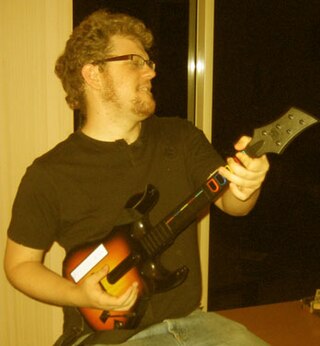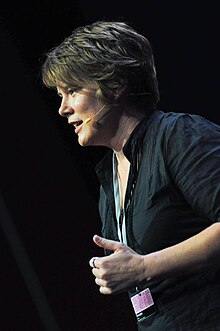
The Queensland University of Technology (QUT) is a public research university located in the coastal city of Brisbane in Queensland, Australia. It has two major campuses, a modern city campus in Gardens Point and a historical campus in Kelvin Grove. The university offers courses in fields including architecture, engineering, information technology, healthcare, teaching, law, arts and design, science and mathematics.
Alternative media are media sources that differ from established or dominant types of media in terms of their content, production, or distribution. Sometimes the term independent media is used as a synonym, indicating independence from large media corporations, but generally independent media is used to describe a different meaning around freedom of the press and independence from government control. Alternative media does not refer to a specific format and may be inclusive of print, audio, film/video, online/digital and street art, among others. Some examples include the counter-culture zines of the 1960s, ethnic and indigenous media such as the First People's television network in Canada, and more recently online open publishing journalism sites such as Indymedia.
William Francis Robinson AO is an Australian painter and lithographer.

A postprint is a digital draft of a research journal article after it has been peer reviewed and accepted for publication, but before it has been typeset and formatted by the journal.
Participatory culture, an opposing concept to consumer culture, is a culture in which private individuals do not act as consumers only, but also as contributors or producers (prosumers). The term is most often applied to the production or creation of some type of published media.
Dr Gary MacLennan and Dr John Hookham are senior lecturers at Queensland University of Technology (QUT) who were suspended for six months in 2007 after publicly criticising a PhD thesis-in-progress by film-maker and sessional lecturer Michael Noonan entitled Laughing at the Disabled.

Edward Guglielmino is an Australian musician, disc jockey, public speaker, academic, and blogger based in Hobart, Tasmania, Australia. He currently is a member of musical groups the Thin Kids and Lost of Love, but is best known for his own solo music career and has commercially released three albums.
Terry Flew is an Australian media and communications scholar, and Professor of Digital Communication and Culture in the Department of Media and Communication at the University of Sydney, Australia. He was formerly the Professor and Assistant Dean (Research) in the Creative Industries Faculty at the Queensland University of Technology. He has produced award-winning research in creative industries, media and communications, and online journalism. He is primarily known for his publication, New Media: An Introduction, which is currently in its fourth edition. His research interests include digital media, global media, media policy, creative industries, media economics, and the future of journalism.
James Smith Page is an Australian educationist and anthropologist, and a recognised authority within the field of peace education.
The ARC Centre of Excellence for Creative Industries and Innovation (CCI) was an Australian research centre that undertook research in media studies, cultural studies, communication studies, law, education, economics, business technology, and information technology, related to the creative economy, between 2005 and 2013.
Michael Noonan is an Australian filmmaker, author and academic. He is a seven-time finalist at Tropfest, the world's biggest short film festival, a two-time AWGIE nominee, and winner of Best Documentary at the Inside Film Awards.

Axel Bruns is a German-Australian media scholar. He is a Professor of Communication and Media Studies at QUT Digital Media Research Centre, Queensland University of Technology in Brisbane, Australia, and a Chief Investigator in the ARC Centre of Excellence for Automated Decision-Making and Society.
Leah King-Smithis a Bigambul descendant, visual artist and lecturer in the School of Creative Practice QUT, Brisbane, Australia. She is best known for her photo compositions.

Kerrie Mengersen is an Australian statistician, distinguished Professor of Statistics at Queensland University of Technology, and 2024 winner of the Ruby Payne-Scott Medal from the Australian Academy of Science.
Vanessa Ann Green is a New Zealand educational theorist and academic. She is currently a full professor at the Victoria University of Wellington.
A YouTuber is a type of content creator and social media influencer who uploads or creates videos on the online video-sharing website YouTube, typically posting to their personal YouTube channel. The term was first used in the English language in 2006, and subsequently appeared in the 2006 Time Person of the Year issue.
Wayne Denning is an Indigenous Australian businessman of Birri Gubba heritage, and is the Managing Director and owner of Carbon Creative.
T.J. Thomson is a senior lecturer in the School of Communication at the Queensland University of Technology in Brisbane, Australia, and a chief investigator at its Digital Media Research Centre, where he leads its News, Media, and Journalism Research Group. He teaches and researches on visual communication topics, especially media representation, the production and reception of visual journalism, and visual culture. He has been an officer in several national and international societies and has served as the associate editor of Visual Communication Quarterly since 2017.
The ARC Centre of Excellence for Automated Decision-Making and Society (ADM+S) is a multi-institutional, multi-disciplinary research centre based at RMIT University in Melbourne, Australia.





